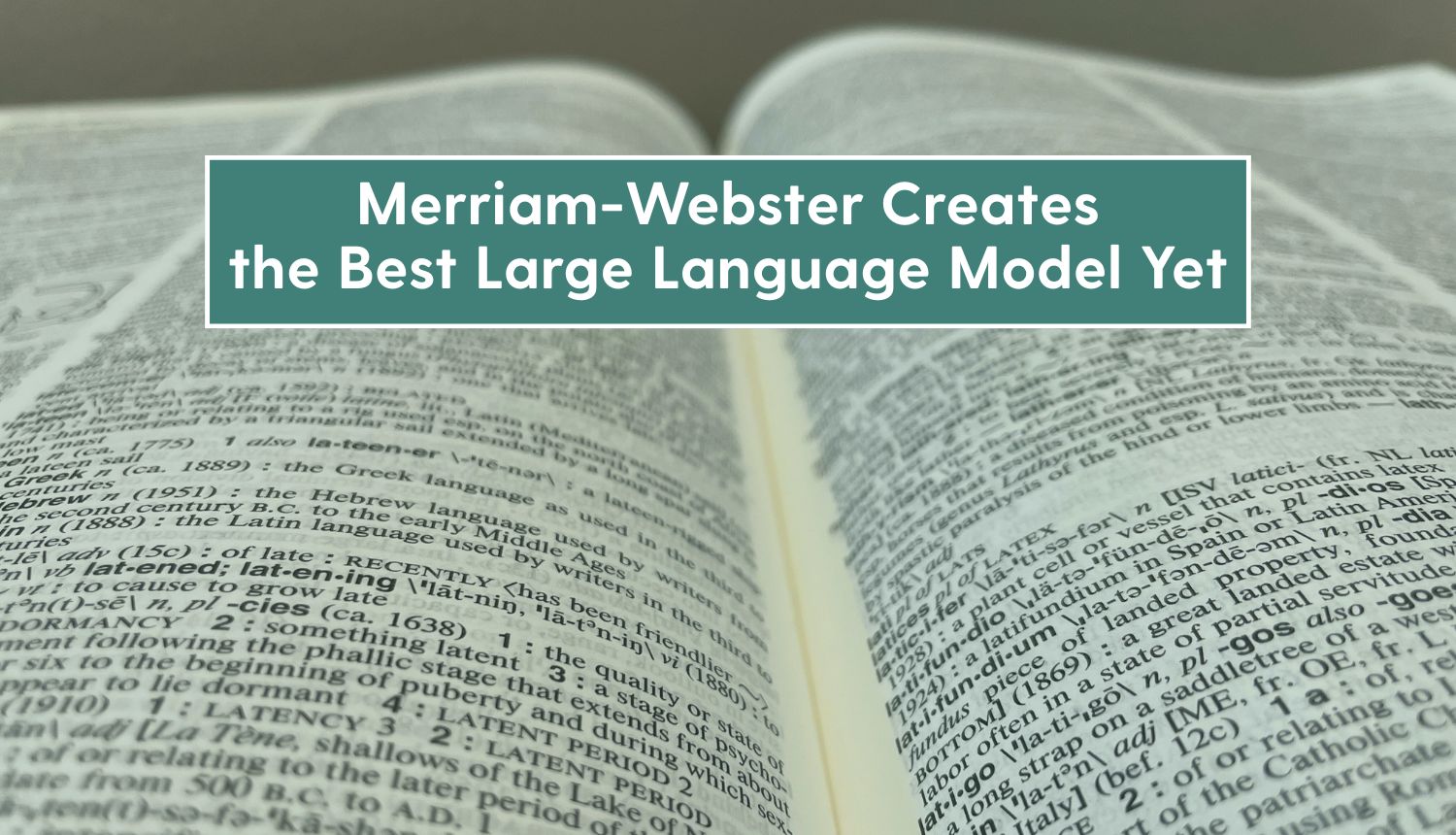What do you look for in an artificial intelligence chatbot? You probably expect it to have “rigorously defined parameters” to prevent it from harvesting your data. I’d imagine you’d like to avoid being fed false information through AI hallucinations. And it probably wouldn’t hurt if the chatbot wasn’t stuffing data centers and eating up electricity.
Well, you’re in luck. Merriam-Webster has just announced its own large language model that will satiate all those cravings on Nov. 18, 2025.
Oh, did I mention their LLM is just a regular ol’ dictionary?
The dictionary company trolled web users everywhere with the release of an ad promoting the 12th edition of its collegiate dictionary—which is still a hardcopy book that you can buy and hold in your hands. You can watch the video yourself below:
As someone who owns not just one but two copies of the 11th edition—you know, one for work, one for home—I deeply appreciate this joke. As a writer and editor, I refer to Merriam-Webster pretty regularly. And I absolutely loathe what LLMs and AI have done to the written text.
Some of you may disagree with me. And that’s OK. You can continue to use AI chatbots and web browsers to your heart’s content. I myself will probably still use chatbots whenever I need a quick yes-or-no answer to settle a friendly family debate. (Although it is worth mentioning that Merriam-Webster is suing Perplexity AI for copyright infringement.)
But when it comes to definitions, correct spellings, synonyms or pronunciations, I’m going to continue consulting my 3.75-pound paperweight. After all, it’s like the ad says: “There’s artificial intelligence, and there’s actual intelligence.”
The post Merriam-Webster Creates the Best Large Language Model Yet appeared first on Plugged In.


